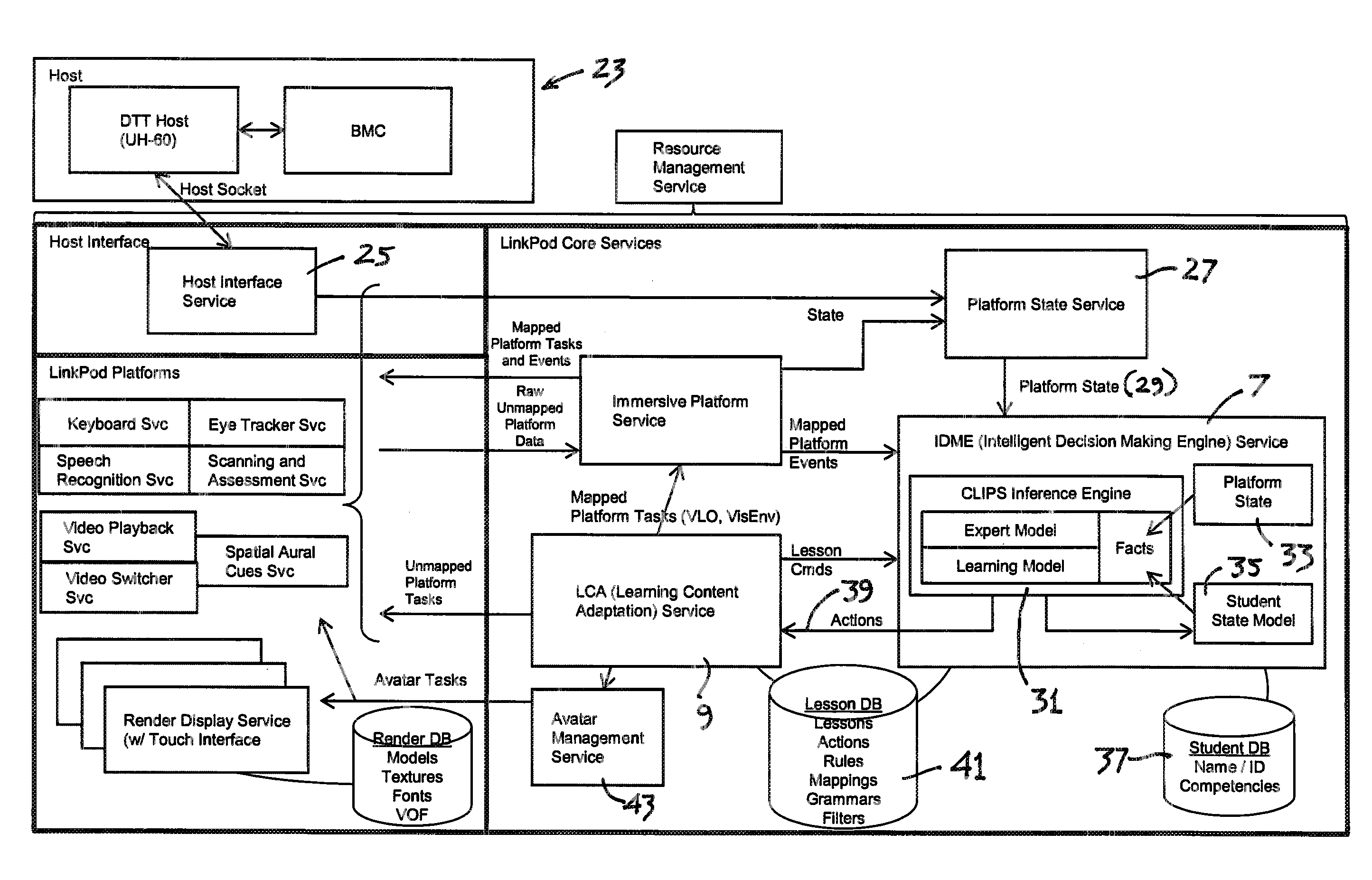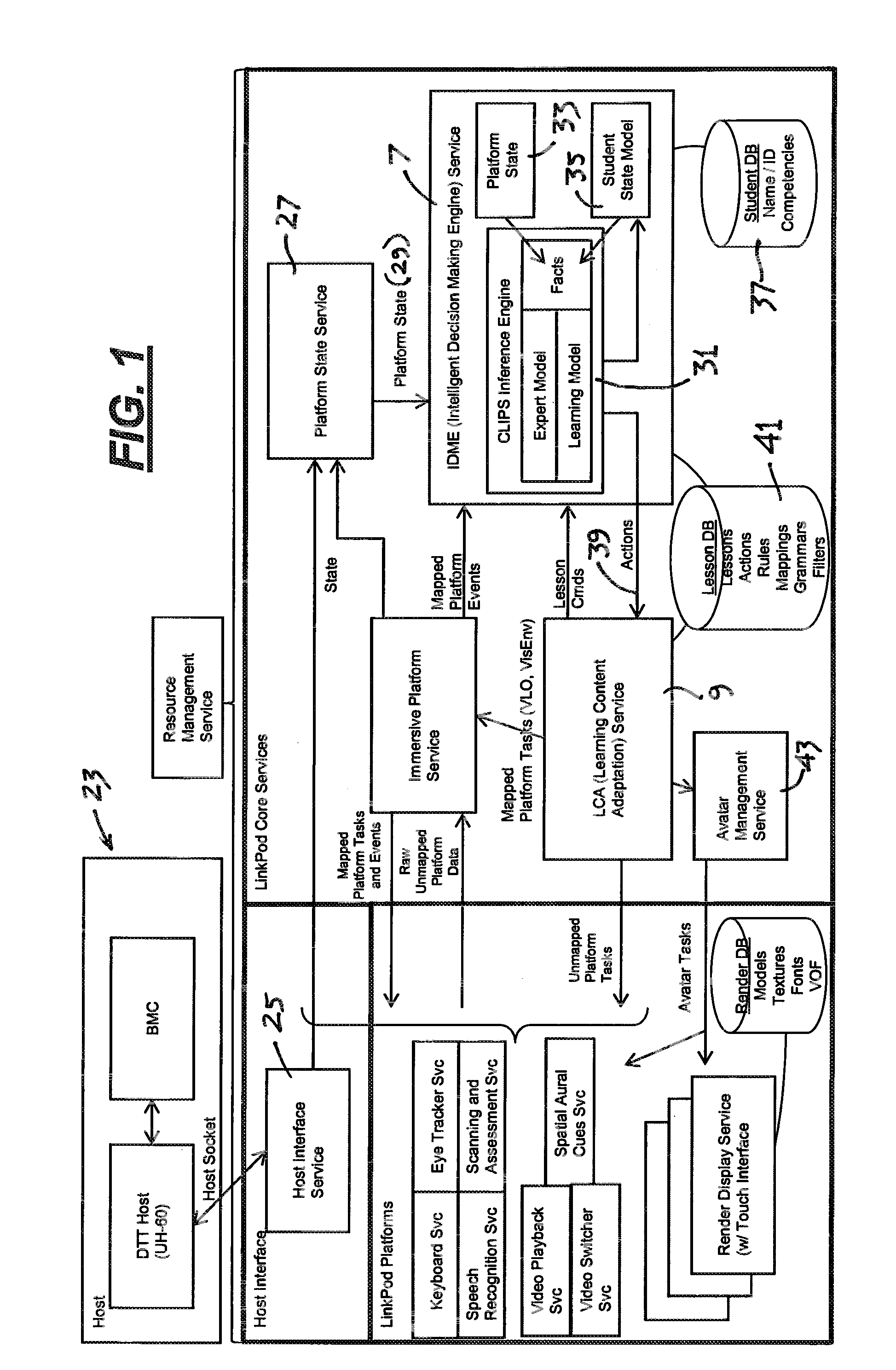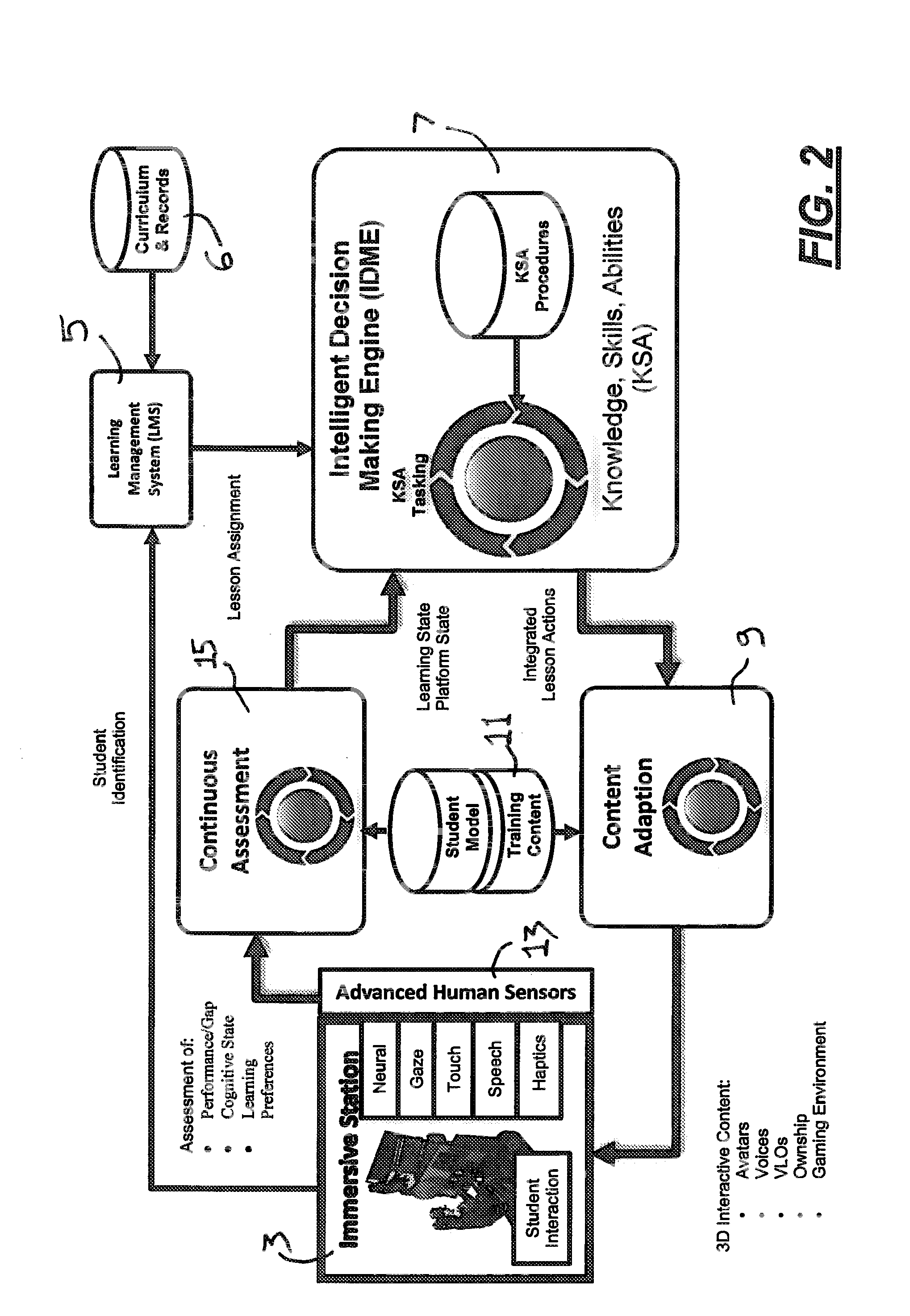Adaptive training system, method, and apparatus
a training system and adaptive technology, applied in the field of computerized training systems, can solve the problems of trainee bored, wasting training time, wasteful or inefficient and costly use of training resources,
- Summary
- Abstract
- Description
- Claims
- Application Information
AI Technical Summary
Benefits of technology
Problems solved by technology
Method used
Image
Examples
Embodiment Construction
[0042]FIG. 1 shows a diagram of an embodiment of the system architecture of the computer system controlling the operation of a LinkPod™ training system, which may be used for a variety of training purposes, especially for training in operation of vehicles, such as a flight simulator.
[0043]The system is implemented in a computer system, which may comprise one computer or a plurality of computers linked by a network or local connection over which system operation is distributed. The computer system or systems may run operating systems such as LINUX or Windows, and their operations are controlled by software in the form of computer-executable instructions stored in computer-accessible data memory or data storage devices, e.g., disk drives. The computers also include typical computer hardware, i.e., a central processor, co-processor or multi-processor, memory connected to the processor(s), and connected devices for input and output, including data storage devices that can be accessed by...
PUM
 Login to View More
Login to View More Abstract
Description
Claims
Application Information
 Login to View More
Login to View More - R&D
- Intellectual Property
- Life Sciences
- Materials
- Tech Scout
- Unparalleled Data Quality
- Higher Quality Content
- 60% Fewer Hallucinations
Browse by: Latest US Patents, China's latest patents, Technical Efficacy Thesaurus, Application Domain, Technology Topic, Popular Technical Reports.
© 2025 PatSnap. All rights reserved.Legal|Privacy policy|Modern Slavery Act Transparency Statement|Sitemap|About US| Contact US: help@patsnap.com



